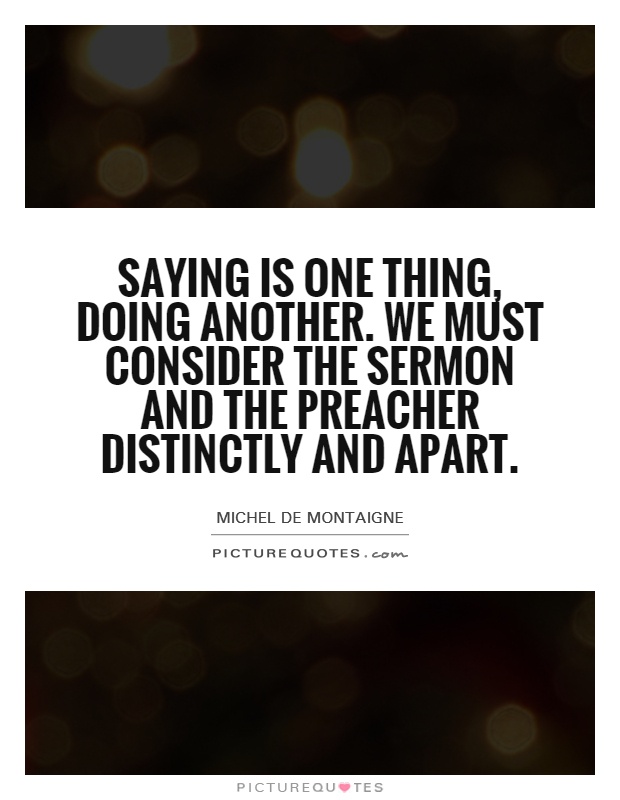Saying is one thing, doing another. We must consider the sermon and the preacher distinctly and apart

Saying is one thing, doing another. We must consider the sermon and the preacher distinctly and apart
Michel de Montaigne, a French philosopher and essayist of the Renaissance period, was known for his skepticism and critical thinking. In his essay "Of the Inconstancy of Our Actions," Montaigne explores the idea that there is often a disconnect between what people say and what they actually do. He argues that it is important to consider the sermon and the preacher separately, as the words spoken by the preacher may not always align with their actions.Montaigne believed that actions speak louder than words, and that it is easy for people to say one thing and do another. He was wary of those who preached high moral values but did not practice what they preached. In his essay, Montaigne discusses the hypocrisy of those who claim to be virtuous and righteous, but engage in immoral behavior behind closed doors. He believed that true virtue lies in consistent actions, rather than empty words.
Montaigne's skepticism extended to organized religion and the clergy. He was critical of the Catholic Church and its leaders, who he believed often used their positions of power for personal gain. Montaigne argued that it is important to judge the sermon and the preacher separately, as the message being preached may be tainted by the personal motives of the preacher.












 Friendship Quotes
Friendship Quotes Love Quotes
Love Quotes Life Quotes
Life Quotes Funny Quotes
Funny Quotes Motivational Quotes
Motivational Quotes Inspirational Quotes
Inspirational Quotes